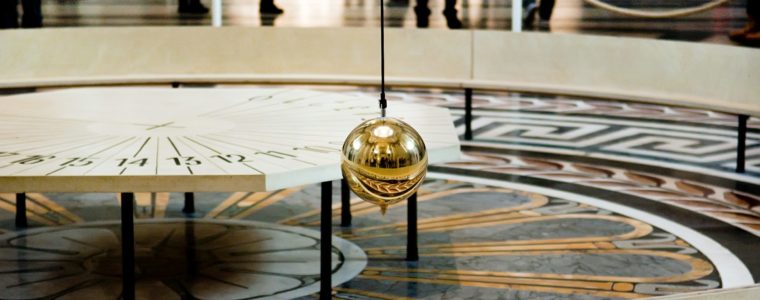Saving the Law
The pro-life movement isn’t just about how bad abortion is, though abortion is indeed bad. Nor does the pro-life movement extend to all the usual “whole life” issues: Society certainly owes pregnant women more financial and social support, for example, but that is not the point. Instead, most narrowly, the pro-life movement is about “the full restoration of the legal guarantee of the right to life”—as the U.S. Catholic bishops recently put it—to all people, including the unborn. Our failure to acknowledge the right to life in law opens a wound in our social order through which poison is insinuated.
The Wound of Lawlessness
In a course on the philosophy of law, Professor Russell Hittinger used to tell the story of sailors who survived shipwreck by taking refuge in a large lifeboat. While at sea, they killed some of their own number in order to conserve food and water. After their rescue, they were charged with murder. They argued that they were at open sea, deprived of civilization and law, forced into a Hobbesian state of nature that justified killing for survival. The judge retorted that human beings deprived of civilization and law have an inherent duty to reconstitute these things.
The professor’s story applies most obviously to libertarian arguments for abortion in which the lives of children are set aside as if of no interest to society. But it applies also to “whole life” advocates: Yes, our social lifeboats should be better stocked with food and water, but not even abundance stops humans from competing with and killing each other. We still need the law. And the story applies even to prolifers, insofar as, say, our moral posturing or imprudent politicking defeat our purpose. For we all have a common duty to restore the protection of the law to all humans. Hence the bishops’ concomitant call for collective penance.
The Poison of Lawlessness
The culture is poisoned when the law is distorted to justify withdrawing protections from any class of persons. Americans know all too well how corruption infected our republic from 1776 through 1860, as we progressively twisted our law and jurisprudence in futile efforts to justify the chattel slavery of blacks. Nor did the corruption suddenly stop with our Civil War, as Jim Crow laws, racial redlining, and other distortions in our legal order emerged from the defense of racism and even from the just fight against it. We learn about the Shoah, the “Holocaust,” as a consequence in part of European anti-Semitism through the centuries. In our own generation, we know the vulnerability of Mexican and other migrant peoples deprived of the protection of the law—and the resultant political degradations and infighting.
In the U.S., perhaps nothing has so corrupted our political order as abortion. Pro-life Democrats have been silenced or purged from their party, eliminating healing voices from within. Many prolifers react predictably, tying themselves so closely to the opposing party that some Republican politicians prefer to sustain the division rather than make progress toward a pro-life consensus. The heightened polarization fuels political fights—e.g., when a vacant seat on the Supreme Court needs to be filled—to the (metaphorical) death.
Eventually, every line-item in public policy or funding is evaluated through the distorting lens: “Will this aid to Native Americans include publicly funded abortions?” “Should we withhold support on the Arctic fishing treaty until all the signatory countries pledge to legalize abortion?” The general public is also fogged, as we can no longer trust our highly partisan politicians and journalists to distinguish truth from falsehood or justice from injustice. Over the past twelve months, we’ve witnessed absurd denials and conspiracy theories concerning racism, protests, election fraud, vaccines, and so much more. In the absence of any public, rational dialogue, the absurdities come indiscriminately from both those who identify as pro-choice and those who identify as pro-life.
Salvation
The multiplication of absurdities reminds me of Umberto Eco’s Foucault’s Pendulum in which the author satirizes the overinterpretation of signs and symbols and suggests his readers should instead strive for a simple reaffirmation of the value of human persons, family, and love. Eco was an atheist and inclined to attribute such overinterpretation to religion and a preoccupation with the occult, but I’d argue that religiosity—while not immune to human fault—is also the best inoculation against the worst absurdities. For the worst often emerge in the political arena, especially when we are overcome by the bestial appetite to defeat our enemies or by the pseudo-religious appetite to glorify our princes.
On the human level, salvation comes from restoration of the essential features of our humanity: reason over irrationality, responsibility over fate, an orientation toward love over the bestial tendency to rivalry. The pro-life movement, insofar as it affirms the basic humanity of unborn children and our common responsibility to protect them in law, is a step toward healing.
But we prolifers need to take care not to preserve too much of the bathwater along with the baby: Our necessarily political efforts to correct the law can submerge us in the bath of overinterpretation of political signs. If we allow our pro-life political judgments to dispose us to deny the humanity of our opponents or our responsibility for rational dialogue, then we will feed the very public denial of humanity that we are committed to ending.
So let’s be all the more diligent in placing the law and our political order in the service of humanity—not only by extending the protection of the law to the unborn, but by remembering that the humanity of all, including the pro-choice, exceeds in value any political expedient.










